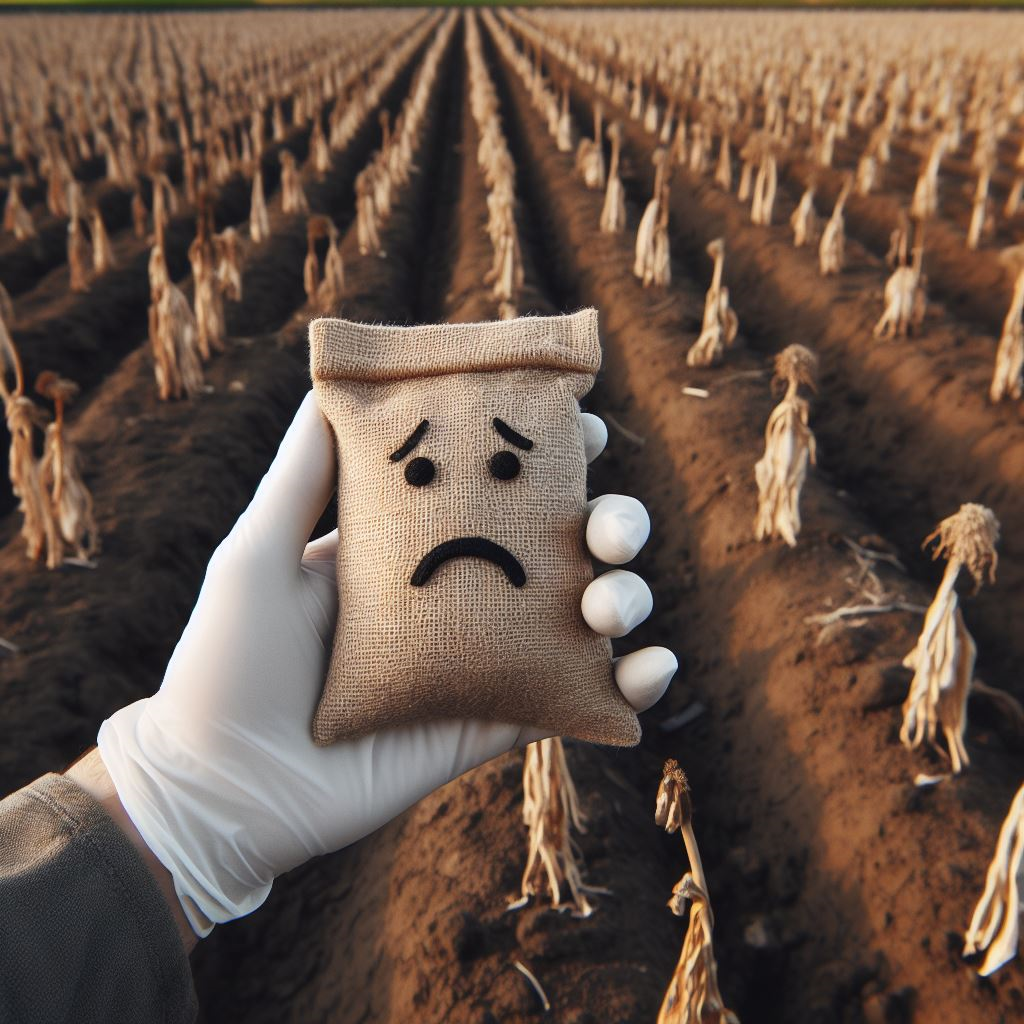President of Sindh Abadgar Board emphasized that the government’s primary responsibility is to control fertilizer black marketing, combat hoarding, and ensure availability.

Growing concerns have been raised regarding possible threats to food security in the Sindh region of Pakistan, where growers are facing a severe shortage of fertilizer that is negatively affecting vegetable cultivation and wheat sowing.
The dismayed farmers are issuing warnings that if the scarcity issue is not promptly addressed, it could escalate into a looming crisis. The problem gained traction when government intervention inadvertently led to a surge in fertilizer prices, giving rise to rampant black marketing of urea and Diammonium Phosphate (DAP) fertilizers, as reported by the Express Tribune.
President of the Sindh Abadgar Board (SAB), Syed Mehmood Nawaz Shah, emphasized that the government’s primary responsibility is to control fertilizer black marketing, combat hoarding, and ensure availability. He expressed deep concern that an overcharge of just Rs. 1,000 per 50-kg bag of fertilizer could potentially result in swindling peasants of over Rs. 130 billion annually.
Shah pinpointed four fertilizer companies, namely Fauji Fertiliser Company Limited (FFCL), Engro Fertilisers Limited (EFL), Fatima Fertiliser Company Limited (FFCL), and Pakarab Fertilisers Limited (PAFL), citing inflated prices and urging immediate corrective action.
The shortage and subsequent price hikes are particularly detrimental to wheat crops, impacting crop yields with only one month left in the sowing season. Despite complaints and protests, the Sindh government and relevant departments have proven ineffective in controlling prices. Growers, dissatisfied with the inaction, are turning to the Sindh High Court seeking relief.
Senior Vice President of the Sindh Chamber of Agriculture (SCA), Nabi Bux Sathio, criticized the lack of penalties for overcharging and expressed disappointment with the inaction of concerned departments. President of the Small Growers Organization, Advocate Ali Palh, criticized government officials for their perceived inactivity, predicting severe food insecurity if immediate action is not taken.
In a bid to address the crisis, Secretary of Agriculture in Sindh, Syed Aijaz Ali Shah, wrote a letter to the Ministry of Industries and Production. He urged an increase in the province’s quota to at least 40 percent of the total production, emphasizing the injustice of Sindh, where gas is supplied and urea is produced, suffering from a severe shortage.
Advisory committees at the provincial and district levels have been formed to tackle the crisis of price hikes due to black marketing. The situation highlights the urgent need for coordinated efforts between the government, relevant industries, and the judiciary to alleviate the fertilizer shortage and safeguard the region’s food security.